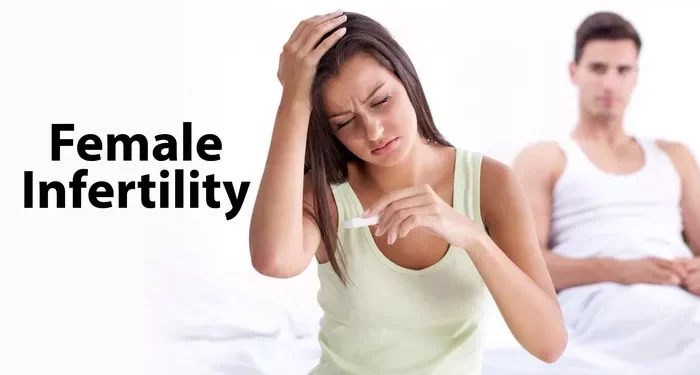Miscarriage is a difficult experience for many women. It brings physical and emotional pain. The loss can leave a lasting impact. One common concern after a miscarriage is whether it will be hard to get pregnant again. This article will explore the challenges and provide information on how to improve the chances of a healthy pregnancy after a miscarriage.
Understanding Miscarriage
A miscarriage is the loss of a pregnancy before the 20th week. It is a common event. About 10-20% of known pregnancies end in miscarriage. Many more occur before a woman even knows she is pregnant. Most miscarriages happen because the fetus is not developing normally. Chromosomal abnormalities are often to blame. These issues are usually not related to the mother’s health.
Physical Recovery After Miscarriage
After a miscarriage, the body needs time to heal. The physical recovery process varies. It depends on how far along the pregnancy was. It also depends on whether there were any complications.
Immediate Recovery: The immediate recovery period can last a few hours to a few days. Women may experience cramping and bleeding. This is the body’s way of expelling pregnancy tissue. The intensity of symptoms can vary.
Return of Menstrual Cycle: It usually takes four to six weeks for a menstrual cycle to return. This is a sign that the body is returning to its normal state. Some women may experience irregular cycles for a few months.
Hormonal Balance: Hormones can take some time to stabilize. The pregnancy hormone hCG needs to return to non-pregnant levels. This can take a few weeks.
Emotional Recovery After Miscarriage
The emotional aspect of recovery is just as important. Miscarriage can lead to feelings of grief, anger, and sadness. Each woman’s experience is unique. It is crucial to give oneself time to grieve. Seeking support from friends, family, or a counselor can be helpful.
Factors Affecting Future Pregnancy After Miscarriage
Several factors can affect how easy or difficult it is to get pregnant after a miscarriage.
Age: Age plays a significant role in fertility. Women over 35 may have more difficulty conceiving. This is due to the natural decline in egg quality and quantity.
Health Conditions: Conditions such as polycystic ovary syndrome (PCOS), thyroid disorders, and diabetes can affect fertility. Managing these conditions is crucial.
Previous Miscarriages: Women who have had multiple miscarriages may face more challenges. However, it is important to note that many women with previous miscarriages go on to have successful pregnancies.
Lifestyle Factors: Smoking, alcohol consumption, and excessive weight can impact fertility. Adopting a healthy lifestyle can improve chances of conceiving.
See Also: Pregnancy after miscarriage: What you need to know
Medical Evaluation and Tests
If a woman has had multiple miscarriages, a medical evaluation is recommended. This can help identify any underlying issues.
Genetic Testing: Genetic tests can identify chromosomal abnormalities. This can provide insight into potential issues that may cause miscarriage.
Hormonal Tests: Hormonal imbalances can affect pregnancy. Tests can check levels of thyroid hormones, prolactin, and other reproductive hormones.
Uterine Evaluation: An ultrasound or hysteroscopy can check for uterine abnormalities. Issues such as fibroids or a septate uterus can affect pregnancy.
Blood Tests: Blood tests can check for clotting disorders or immune system issues. These can increase the risk of miscarriage.
Improving Chances of Pregnancy After Miscarriage
While getting pregnant after a miscarriage can be challenging, several steps can improve the chances.
Timing: It is often recommended to wait until at least one menstrual cycle before trying to conceive again. This allows the body to heal. However, many doctors suggest waiting three to six months for emotional and physical recovery.
Healthy Diet: A balanced diet rich in vitamins and minerals can improve fertility. Folic acid, iron, and vitamin D are particularly important.
Regular Exercise: Regular, moderate exercise can improve overall health. It helps maintain a healthy weight, which is beneficial for fertility.
Stress Management: High stress levels can negatively impact fertility. Techniques such as yoga, meditation, and counseling can help manage stress.
Medical Treatments: For those with underlying conditions, medical treatments may be necessary. Medications can manage hormonal imbalances or other health issues.
Psychological Support
Seeking psychological support is vital. Miscarriage can lead to anxiety and depression. Support groups, counseling, and talking with loved ones can provide emotional relief.
Success Rates and Encouraging Statistics
Despite the challenges, many women go on to have healthy pregnancies after miscarriage. Studies show that about 85% of women who have had one miscarriage will have a successful pregnancy next time. Even after two or three miscarriages, the chance of a successful pregnancy is about 75%.
Conclusion
Getting pregnant after a miscarriage can be challenging, but it is not impossible. Understanding the factors that affect fertility, taking care of physical and emotional health, and seeking medical advice can improve the chances of a successful pregnancy. It is important to stay hopeful and patient during this time. Each woman’s journey is unique, and many go on to experience the joy of a healthy pregnancy after miscarriage.
FAQs
What are the odds of still being pregnant after a miscarriage?
After a miscarriage, it’s crucial to confirm that the miscarriage is complete and that no pregnancy tissue remains in the uterus. This is typically done through an ultrasound or blood tests. If these tests confirm that the miscarriage is complete, the chances of still being pregnant are very low.
However, if you have been actively trying to conceive after a miscarriage, it is possible to become pregnant again. Many women successfully conceive shortly after a miscarriage, as the body can return to fertility quite quickly. It is generally recommended to wait for at least one menstrual cycle before trying again, though some women may conceive immediately.
How long did it take you to get pregnant after a miscarriage?
The time it takes to get pregnant after a miscarriage varies for each individual. On average, many women conceive within six months of their miscarriage. Some may conceive immediately, while others may take a year or more. Several factors can influence this timeline, including:
- Age: Older women may take longer to conceive.
- Health Conditions: Underlying health issues may affect fertility.
- Lifestyle Factors: Maintaining a healthy lifestyle can influence how quickly you conceive.
It is essential to be patient and consult with a healthcare provider if you have concerns about your fertility or if you have been trying to conceive for an extended period without success.
Can miscarriage cause infertility?
A miscarriage itself typically does not cause infertility. However, certain factors related to miscarriage or its underlying causes might affect fertility. These factors can include:
Underlying Health Conditions: Conditions that may have contributed to the miscarriage, such as hormonal imbalances or uterine abnormalities, could affect future fertility.
Repeated Miscarriages: Multiple miscarriages may suggest a potential issue with fertility or reproductive health, and further investigation may be necessary.
In most cases, women who have had a miscarriage are still able to conceive in the future. It is important to address any underlying health issues with your healthcare provider to improve the chances of a successful pregnancy.
How to not worry during pregnancy after miscarriage?
Experiencing anxiety during a pregnancy after a miscarriage is common. Here are some strategies to help manage worry and maintain a positive outlook:
- Seek Support: Join support groups or talk to others who have had similar experiences. Sharing your feelings can provide comfort and understanding.
- Regular Check-ups: Schedule regular prenatal appointments and ultrasounds. Frequent check-ups can provide reassurance about the health of your pregnancy.
- Practice Stress-Relief Techniques: Engage in activities that help you relax, such as meditation, yoga, or deep-breathing exercises.
- Stay Informed: Educate yourself about pregnancy and its common concerns. Understanding what to expect can help reduce anxiety.
- Focus on Positive Outcomes: Remind yourself that many women go on to have healthy pregnancies after a miscarriage.
- Talk to a Counselor: If anxiety becomes overwhelming, consider speaking with a mental health professional who specializes in pregnancy and fertility.
By taking these steps, you can better manage worry and focus on the joy of your pregnancy.
Related Links:



























